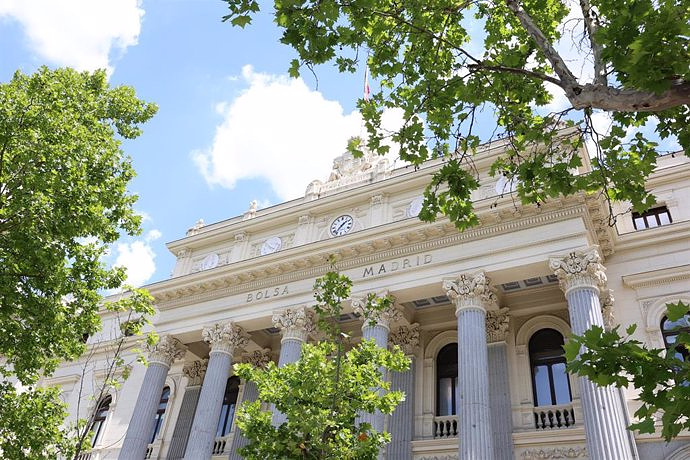MADRID, 20 Dic. (EUROPA PRESS) -
The Board of the Senate has agreed on Tuesday to continue with the processing of the reform of the Criminal Code, which repeals the crime of sedition and touches on embezzlement, without the amendments that paralyzed the Plenary of the Constitutional Court on the renewal of the court itself.
This has been agreed by this body, which has met before the appointment of the Justice Commission takes place. This decision has gone ahead thanks to the majority that make up the PSOE and the PNV in the Senate Table, in the face of the rejection of the PP, according to parliamentary sources.
In this way, the Senate Board has given the green light for the Justice Commission to meet so that it is in charge of separating from the rest of the bill the amendments on which the Constitutional Court issued its very precautionary measures and decided to paralyze.
Thus, the processing in the Senate of the rest of the proposed law that repeals the crime of sedition and reduces the penalties for the crime of embezzlement continues, so that, if the Justice Commission gives the green light this Tuesday to the opinion, the reform of the Criminal Code would go to the Senate Plenary this Thursday, December 22, although without the amendments paralyzed by the Constitutional.
The Plenary of the Constitutional Court (TC) agreed on Monday night by 6 votes to 5, to urgently suspend the parliamentary processing of the two amendments by which the system of election and arrival of the two candidates to the TC is modified appointed by the General Council of the Judiciary (CGPJ), thus admitting the very precautionary measures requested by the PP in its appeal against said amendments.
After this, the president of the Senate, Ander Gil, decided to issue an institutional declaration in which he affirmed that he would abide by the Constitutional decision, but announced that, once the content and scope of the resolution is known and analyzed, ways "to preserve parliamentary autonomy.

 Exploring Cardano: Inner Workings and Advantages of this Cryptocurrency
Exploring Cardano: Inner Workings and Advantages of this Cryptocurrency Seville.- Economy.- Innova.- STSA inaugurates its new painting and sealing hangar in San Pablo, for 18 million
Seville.- Economy.- Innova.- STSA inaugurates its new painting and sealing hangar in San Pablo, for 18 million Innova.- More than 300 volunteers join the Andalucía Compromiso Digital network in one month to facilitate access to ICT
Innova.- More than 300 volunteers join the Andalucía Compromiso Digital network in one month to facilitate access to ICT Innova.-AMP.- Ayesa acquires 51% of Sadiel, which will create new technological engineering products and expand markets
Innova.-AMP.- Ayesa acquires 51% of Sadiel, which will create new technological engineering products and expand markets Student camps will continue in the face of CRUE's "empty promises" and demand a "total break" with Israel
Student camps will continue in the face of CRUE's "empty promises" and demand a "total break" with Israel The Generalitat expresses its "total" opposition to BBVA's takeover of Sabadell
The Generalitat expresses its "total" opposition to BBVA's takeover of Sabadell Death toll rises to 107 from floods caused by heavy rains in southern Brazil
Death toll rises to 107 from floods caused by heavy rains in southern Brazil BBVA is willing to assume the possible reputational risk if the takeover bid for Sabadell does not go ahead
BBVA is willing to assume the possible reputational risk if the takeover bid for Sabadell does not go ahead How Blockchain in being used to shape the future
How Blockchain in being used to shape the future Not just BTC and ETH: Here Are Some More Interesting Coins Worth Focusing on
Not just BTC and ETH: Here Are Some More Interesting Coins Worth Focusing on Expociència expects to receive more than 4,000 visitors in the Science Park of the University of Valencia
Expociència expects to receive more than 4,000 visitors in the Science Park of the University of Valencia They develop devices for the precise diagnosis of cancer patients
They develop devices for the precise diagnosis of cancer patients UMH researchers are working on a high-quality apricot crop that requires less irrigation water
UMH researchers are working on a high-quality apricot crop that requires less irrigation water The UPV develops an application to improve the quality of life of patients with glioblastoma
The UPV develops an application to improve the quality of life of patients with glioblastoma A million people demonstrate in France against Macron's pension reform
A million people demonstrate in France against Macron's pension reform Russia launches several missiles against "critical infrastructure" in the city of Zaporizhia
Russia launches several missiles against "critical infrastructure" in the city of Zaporizhia A "procession" remembers the dead of the Calabria shipwreck as bodies continue to wash up on the shore
A "procession" remembers the dead of the Calabria shipwreck as bodies continue to wash up on the shore Prison sentences handed down for three prominent Hong Kong pro-democracy activists
Prison sentences handed down for three prominent Hong Kong pro-democracy activists ETH continues to leave trading platforms, Ethereum balance on exchanges lowest in 3 years
ETH continues to leave trading platforms, Ethereum balance on exchanges lowest in 3 years Investors invest $450 million in Consensys, Ethereum incubator now valued at $7 billion
Investors invest $450 million in Consensys, Ethereum incubator now valued at $7 billion Alchemy Integrates Ethereum L2 Product Starknet to Enhance Web3 Scalability at a Price 100x Lower Than L1 Fees
Alchemy Integrates Ethereum L2 Product Starknet to Enhance Web3 Scalability at a Price 100x Lower Than L1 Fees Mining Report: Bitcoin's Electricity Consumption Declines by 25% in Q1 2022
Mining Report: Bitcoin's Electricity Consumption Declines by 25% in Q1 2022 Oil-to-Bitcoin Mining Firm Crusoe Energy Systems Raised $505 Million
Oil-to-Bitcoin Mining Firm Crusoe Energy Systems Raised $505 Million Microbt reveals the latest Bitcoin mining rigs -- Machines produce up to 126 TH/s with custom 5nm chip design
Microbt reveals the latest Bitcoin mining rigs -- Machines produce up to 126 TH/s with custom 5nm chip design Bitcoin's Mining Difficulty Hits a Lifetime High, With More Than 90% of BTC Supply Issued
Bitcoin's Mining Difficulty Hits a Lifetime High, With More Than 90% of BTC Supply Issued The Biggest Movers are Near, EOS, and RUNE during Friday's Selloff
The Biggest Movers are Near, EOS, and RUNE during Friday's Selloff Global Markets Spooked by a Hawkish Fed and Covid, Stocks and Crypto Gain After Musk Buys Twitter
Global Markets Spooked by a Hawkish Fed and Covid, Stocks and Crypto Gain After Musk Buys Twitter Bitso to offset carbon emissions from the Trading Platform's ERC20, ETH, and BTC Transactions
Bitso to offset carbon emissions from the Trading Platform's ERC20, ETH, and BTC Transactions Draftkings Announces 2022 College Hoops NFT Selection for March Madness
Draftkings Announces 2022 College Hoops NFT Selection for March Madness




























